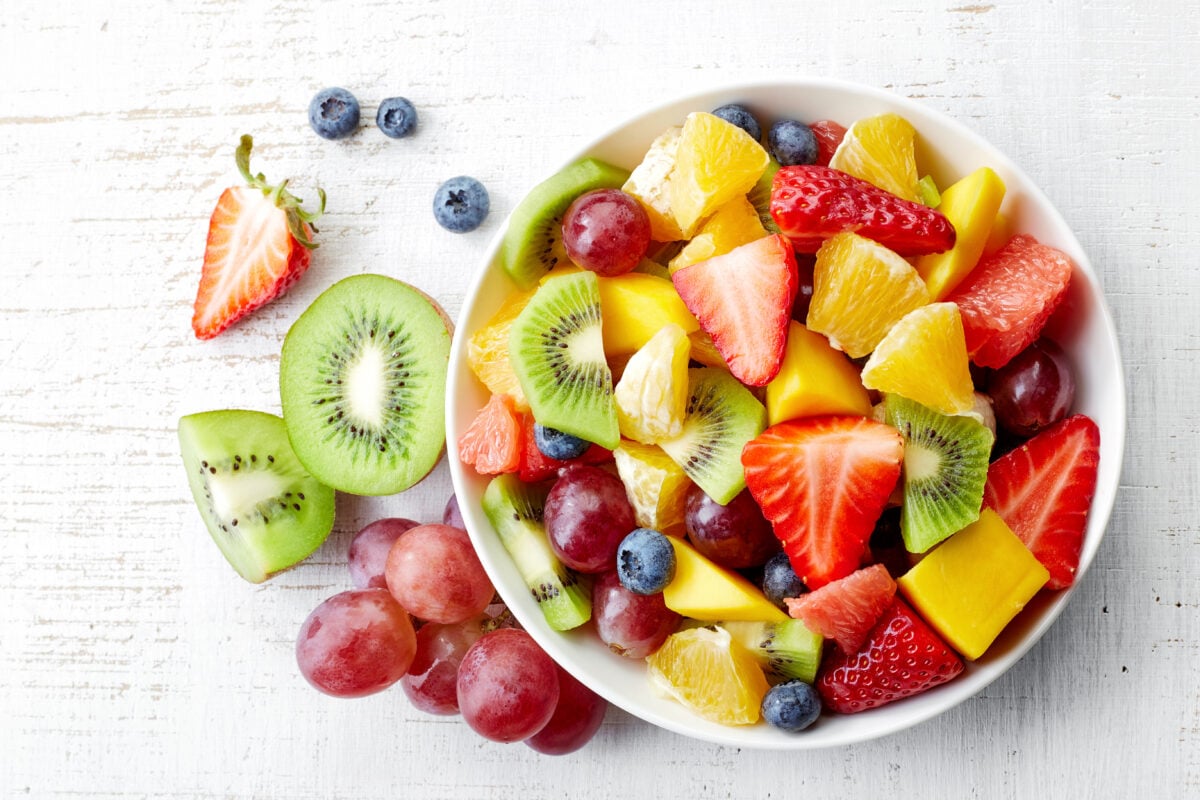Over the course of 2025, a small group of fitness influencers have been heralding a new diet trend that nobody saw coming: a low-protein, low-fat, meal plan filled with as much sugar as you like. The sugar diet for weight loss is a trending topic on YouTube, but what is this high sugar diet plan, and can it really help with weight loss?
Humans have been debating the optimum diet for health for centuries. At any given time, there are multiple unusual and restrictive ways of eating trending in the news and social media, often featuring a comfortable set of rules and promises of quick and easy results. Such fad diets – that also include keto, carnivore, and juice cleanses – tend to lack scientific backing when it comes to long-term health, and they can also have serious adverse effects. It’s the view of most major nutritional bodies that diets rich in nutritious plant foods like vegetables, fruits, whole grains, legumes, nuts, and seeds, and low in added sugars, saturated fats, and sodium, are the best long-term diets for humans. With that in mind, it’s advised to treat the sugar diet – and all its contemporaries – with caution, and always get your nutrition information from registered health professionals, not social media influencers.
That said, if you are interested in the theory behind the sugar diet, and how it became so prominent in popular culture, here’s what you need to know.

The sugar diet is a new trend with multiple interpretations, but it can broadly speaking be defined as a diet low in protein, low in fat, and high in carbohydrates. The key carb source – as the name suggests – is sugar, and this can be in the form of healthy foods like fruit and some vegetables (like corn, carrots, and peas), and/or less nutritious options like juice, maple syrup, granulated sugar, or simply just candy.
Different interpretations of the sugar diet will have different effects on health. Diets rich in fruit, vegetables, and complex carbohydrates, for example, have long been known to offer health benefits. Those high in refined sugar and candy, however, as many proponents of the sugar diet promote, are not recommended by health organizations across the board. The term “sugar diet” is largely used to describe the latter, junk food-rich meal plan. For this reason, experts are urging those interested in the diet to exercise serious caution.
“As a medical doctor and gut health expert, when I first saw this new sugar diet trend I honestly thought it was a prank,” gastroenterologist Dr Alan Desmond told Plant Based News. “Sadly, it’s a genuine online trend. Yet another extreme idea that ignores how the human body works and what genuine lasting health looks like.”
Mark Bell is a fitness influencer from California. He has established himself as a key proponent of the sugar diet. For him, the sugar diet for weight loss entails taking part in regular “sugar fasts,” which see him consume just six foods: fruit, fruit juice, maple syrup, honey, sugar, and candy. He previously shared a high sugar diet plan where he claimed to take part in four full days, and one half day, of sugar fasts each week. The rest of the days see him eat high-protein foods like meat and protein shakes alongside starchy foods. Fat intake is limited to under 50g per day on non-fast days, while protein is around between 100g and 150g (Bell weighs 95kg). Bell’s way of eating is not backed by mainstream nutrition advice.
“Our bodies need a range of nutrients to thrive including protein, healthy fats, fiber, vitamins and minerals,” said Dr Desmond. “Relying mostly on sugar to lose weight is not just unbalanced. It guarantees you will miss out on vital nutrients, feel constantly hungry, and end up right back where you started once you stop.”
Many influencers, like Bell, supplement their sugar intake with meat consumption as well as honey, neither of which are vegan. But there are some plant-based advocates of sugar diets. Leanne Radcliffe – known online as Freelee the Banana Girl – is a blogger from Australia. She describes herself as a “sugar expert” and has eaten a fruit-based diet for 18 years. For her, this means eating mostly fruit, but also some vegetables and grains as well. She also regularly consumes sugar water, which features three tablespoons of sugar, frozen berries, and lemon or lime in water.
In April 2025, Radcliffe shared a video showcasing how much sugar she eats per day, claiming she gets through around eight tablespoons of organic cane sugar per day. While Radcliffe’s diet may work for her, it is also not backed by mainstream health advice. Diets high in fruit offer many benefits, but experts tend to recommend a more balanced approach with high consumption of a wide variety of nutritious plant foods and limited added sugar.
Purported health benefits of any sort of sugar diet are largely anecdotal at this stage. A 2025 study published in Nature Metabolism, however, has indicated that some of the claims regarding the low protein, high carbohydrate intake’s relation to weight loss may have some scientific basis.
In the study, researchers investigated the effects of a low-protein diet on energy expenditure. The study placed healthy men in their mid-twenties with a mean BMI of 25 on a protein-restricted diet, which was set at 0.8g of protein per kilogram of body weight (this is still within recommended protein guidelines). The diet was nine percent protein and 70 percent carbohydrates. They followed this diet for five weeks, before reverting to a higher protein diet for the next five weeks.
When embarking on the low-protein diet, participants needed to increase their energy intake to maintain body weight. This means that they needed to consume more calories. By week five, they increased by 19 percent (574 calories per day) – but still lost a kilogram of body weight. This occurred without significant changes in muscle mass and without change in physical activity.
Researchers also looked at whether swapping carbs for fats would change the results. In this study, protein was kept at nine percent, while fat was set at 50 percent (more than double that of the first study). Carbohydrates were reduced to 41 percent. The results were similar to the first study, with participants needing to eat 21 percent more calories per day to maintain their weight. This indicates that protein restriction, not carbohydrates themselves, led to the study participants burning off more energy.
Researchers found that protein restriction led to increased levels of a hormone named FGF21, which stands for fibroblast growth factor 21. FGF21 helps regulate blood sugar levels and insulin sensitivity, both of which are important for metabolic health. Higher energy intake requirements on low-protein diets therefore seem to be partly a result of higher FGF21 levels in the body. More research is needed in this area, however, and the effects of low protein levels on FGF21 will depend on the overall health and age of the person.
Ultra high-protein diets have, for years, been heralded by many as optimum eating plan for athletes and weight loss, and the Nature Metabolism study is one of many to cast doubt that protein is the be-all and end-all of health. High-meat diets such as carnivore and keto are known to carry health risks, and most of the population doesn’t require anywhere near the levels advocated by meat-based diet advocates.
The study indicates that diets with lower protein (though still within recommended levels) and higher intake of carbs may have benefits for both weight loss and fitness. That said, the study was very small and we don’t know the long-term effects of such an eating pattern.
A huge body of previous research has indicated that, for most of the population, plant-based diets rich in whole foods carry many health benefits, and they can also lower the risk of chronic diseases like heart disease, type 2 diabetes, and some cancers. Most people do not need to worry too much about their protein intake, as eating enough calories from a variety of plant foods will generally give you more than enough. If you are an athlete or more active, high-protein diets are also perfectly compatible with whole foods, plant-based eating, and many vegan athletes favor protein sources such as chickpeas, lentils, and beans.

The sugar diet is a new phenomenon, and – due to it lacking a clearly understood eating path, definition, and proper research – it is impossible to say whether or not it can be beneficial. While interpretations of the sugar diet that include plenty of fruits and vegetables and plant-based whole foods may be good for health, claims that eating lots of refined sugar and candies alongside meat constitutes a healthy eating plan lack any scientific basis. These diets will also likely have a negative impact on overall health for many people. Excessive sugar consumption can increase the risk of conditions like high blood pressure and heart disease – not to mention the impact it can have on your teeth.
When it comes to nutrition, it is always best to follow advice from qualified health professionals and bodies, rather than social media trends and influencers.
“Study after study shows that a diet based around diverse plants helps control weight long term, supports gut health and lowers your overall risk of disease,” said Dr Desmond. “As a doctor my advice is clear. Skip this dangerous ‘sugar diet’ fad.”










:max_bytes(150000):strip_icc()/PARENTS-dogs-and-baby-eczema-f1eb5cccac6348e48bb86d8302df60ac.jpg)

